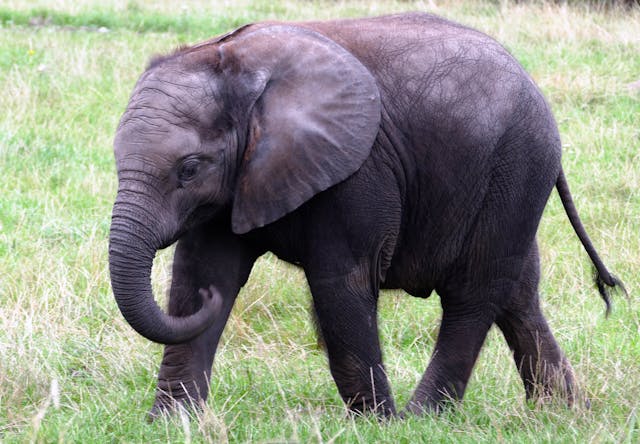
What is Peto’s Paradox? Peto’s Paradox is an observation that the occurrence of cancer in an organism doesn’t increase in line with the number of cells that organism has. Because cancer is caused by mutations in cells, it would be logical that the more cells an organism has, the more occurrences of cancer it will have. This doesn’t appear to happen.
Peto’s Paradox is named after the person who discovered it, Richard Peto. He is an English statistician and epidemiologist at the University of Oxford. He has worked hard to reduce the number of people who smoke in the world and the resultant number of smoking-related cancers. He came up with his paradox in 1977. He looked at the rates of cancer in 36 different species of animals, and he found no connection between their size and the incidence of cancer that they had. Logically, blue whales have about 1,000 more cells than we do (roughly 30 quadrillion cells), and yet they don’t have 1,000 times more cancers than we do. In fact, they have fewer cancers than we do.
We have 30 trillion cells in our bodies, and they all die at some point. Blood cells and the cells in our intestines last for a few days, and some cells last an entire lifetime. The cells that don’t last a lifetime are all programmed to die, and then they are removed from the body. When they die, they have to be replaced, which means our cells are always multiplying. Every time a cell multiplies, it makes a faithful duplicate of our DNA for the new cell. With trillions of cells being duplicated, the chance that there will be an error in the copy is fairly high. Our bodies are good at catching these mutations, and they are removed quickly. However, sometimes they are not removed, and they are able to reproduce themselves. When this happens, cancer can form. The cells are part of our body, so the immune system doesn’t target them, and they are able to co-opt blood vessels to bring them oxygen and nutrients. Once this happens, the cancer will grow. Logically, if there is a 1% chance that cells will mutate, that would mean that the more cells an organism has, the more mutations it will have. But that’s not true.
The occurrence of cancer within a species is dependent on size. Studies of humans and studies of dogs that lasted for several years have shown that larger people and larger dogs get more cancer than smaller people and smaller dogs. This doesn’t follow between species, though. One reason for this is that larger animals live longer, and they have had to evolve mechanisms to deal with cancer. Large, long-lived animals, like elephants, have a gene called p53, which is associated with cancer suppression and DNA repair. Whales have evolved to repair their DNA more accurately, to have lower metabolisms, and they have genes to suppress tumors. They need this because of their size and their length of life, but smaller animals don’t live as long and don’t need to spend the energy to have a gene or methods like this. Developing cancer is a probability issue. The law of big numbers says that the more often something happens, the greater the likelihood that something improbable will happen. If an animal doesn’t have a long lifetime, there is not enough time to bring the chance that a cell mutation will cause cancer close to 1. If an animal has a longer lifetime, this chance gets higher. That means, without a gene like p53, elephants, whales, and long-lived animals would have a risk of cancer that is 1,000 times higher, and they would not live long enough to reproduce, which would wipe out their species pretty quickly. The fact that they are here means they have evolved to lower their risk of cancer.
So, why do we have more cancer than whales and elephants? Well, technically, we don’t. Just like any organism, the risk of cancer increases with age, but we don’t have the genes that elephants have. This is because we naturally don’t live as long as elephants do. An elephant in the wild will live to about 70. A human in the wild will live, on average, to about 40. The chance of developing cancer at the age of 40 is about 1%. That is not high enough for us to need to evolve the genes that elephants and whales have. Whales can live for 200 years. Now, because of healthcare and medical technology, we can live two or more times longer than we have evolved to live, which greatly increases our chance of getting cancer. And this is what I learned today.
Get the 6 volume multibook https://mybook.to/125questions6books
Sources
https://cancer.ca/en/cancer-information/what-is-cancer/how-cancer-starts-grows-and-spreads
https://pmc.ncbi.nlm.nih.gov/articles/PMC3060950
https://en.wikipedia.org/wiki/Peto%27s_paradox
https://en.wikipedia.org/wiki/Richard_Peto
https://www.vitares.org/en/magazine-en/70-why-don-t-whales-get-cancer-more-often
https://www.scientificamerican.com/article/how-old-can-humans-get
https://www.cancer.gov/about-cancer/causes-prevention/risk/age
Photo by Anthony 🙂: https://www.pexels.com/photo/elephant-calf-133394/
